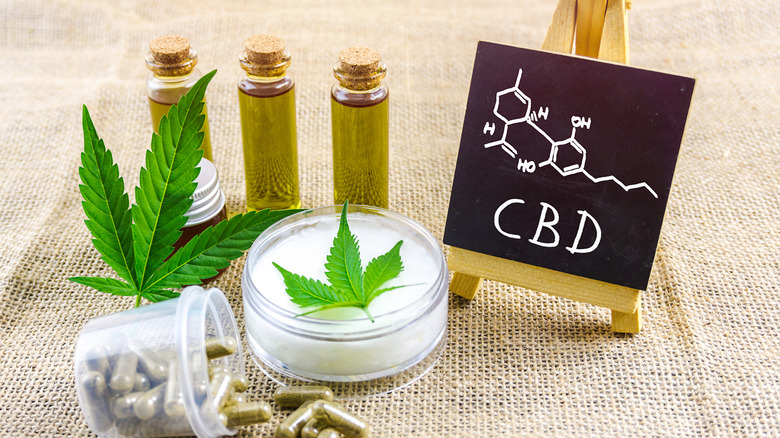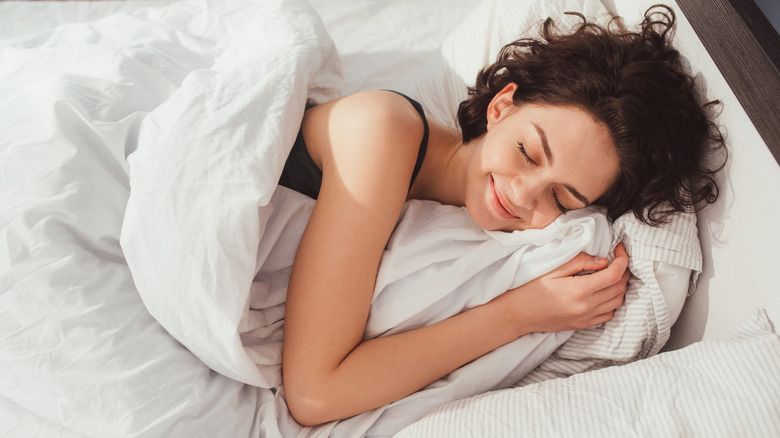How Much CBD Should You Really Be Taking?
Cannabidiol (CBD) has taken the world by storm. Naturally derived from the hemp plant and non-psychoactive, this cannabinoid has become one of the top-selling health supplements in the United States (via Hemp Industry Daily) just a year after hemp was re-legalized with the passing of the 2018 Farm Bill (via Brookings). While hemp cultivation was widespread in the U.S. in the 18th and 19th centuries, the Marijuana Tax Act of 1937 lumped it together with cannabis as a plant that was a danger to public health via (The Daily Beast).
Studies suggest that CBD is effective for everything from insomnia and anxiety relief to breaking addictions and providing pain relief (via Harvard Health). The strongest evidence of CBD's health benefits is its use as an anti-seizure drug for various child epilepsy syndromes. Despite its known health benefits, there is still lots of confusion relating to what a proper dosage of CBD is, so let's clear the air.
At what dosage is CBD effective?
Because CBD is available in many forms — oils, gummies, capsules, cigarettes, etc. — and is sold over the counter and therefore not regulated by the FDA, there is no official dosage guideline, per Medical News Today. Most CBD products list a 10 mg serving as a standard dose on the packaging, but many experts advise that you might need more to experience an effect. Though dosages often differ for treating different issues and the form in which it's taken, you should consult your doctor before taking CBD, per Medical News Today.
According to a 2020 study published in the Journal of Clinical Medicine Research, daily doses between 150 mg and 600 mg were used to achieve a significant effect in reducing clinical anxiety, and 200 mg to 800 mg per day showed a reduction of psychotic symptoms equal to that of a pharmaceutical anti-psychotic. A 2017 study published in Frontiers in Pharmacology found that CBD was effective at reducing anxiety before public speaking at single doses of 300 mg to 600 mg, while a single dose of 160 mg was effective at increasing the duration of sleep at night.


